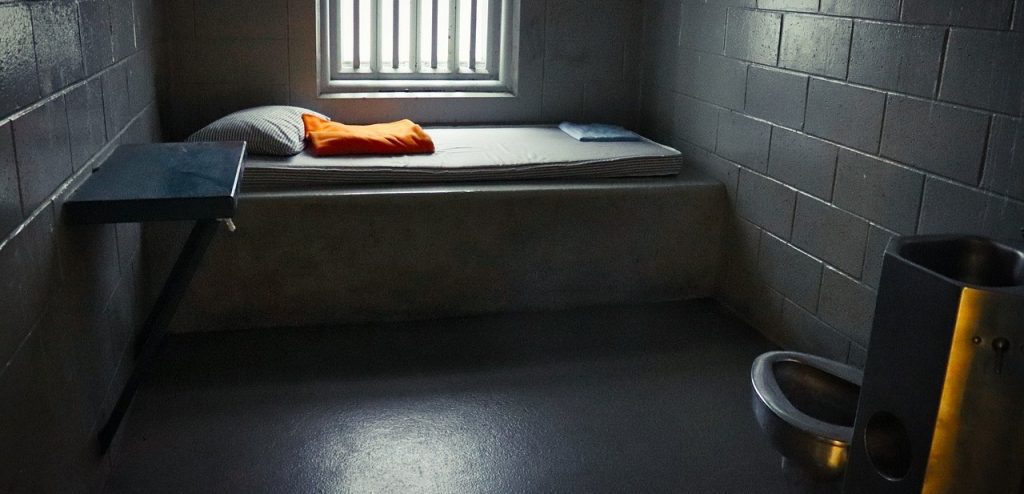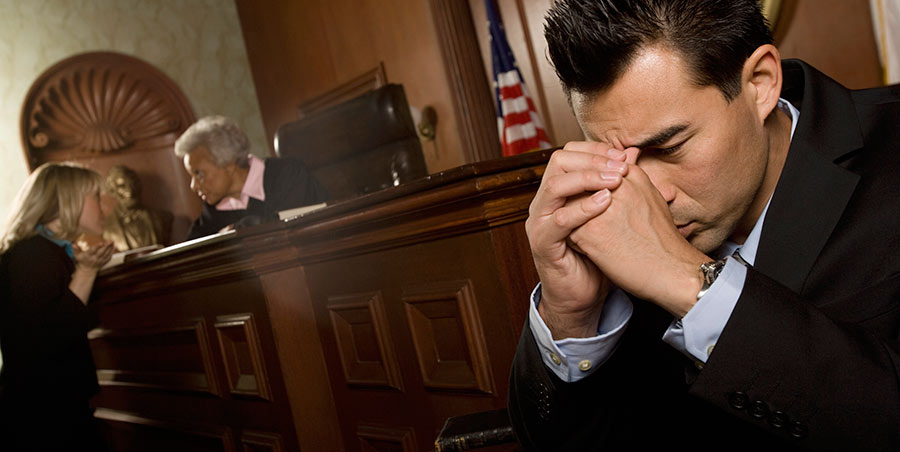Determining if a guilty plea is in your best interest is complex.
Sometimes, evidence of guilt is overwhelming, and there is no reasonable alternative but to enter a plea. Obtaining the most favorable plea bargain and sentence agreement is critical in these situations.

“Should I plead guilty to criminal charges or take my case to trial?”
Deciding whether to plead guilty to a felony or misdemeanor involves considering several vital factors. Here are some common factors that individuals may consider:
- Strength of the Evidence: Assessing the strength of the prosecution’s evidence against you is crucial. If the evidence is substantial and the chances of a successful defense seem unlikely, pleading guilty may be considered as a way to obtain a more favorable outcome. A jury trial might be the defendant’s best option if the evidence is weak.
- Sentence Agreements (Cobb’s Plea): Understanding the potential penalties associated with the charges is essential. By pleading guilty, an influential defense attorney might be able to negotiate a reduced sentence or a more lenient punishment compared to the potential consequences of going to trial and being convicted.
- Plea Bargains: Prosecutors often offer plea bargains, which involve negotiating a guilty plea in exchange for a reduced charge, sentence, or dismissal of some charges. The specific terms of the plea bargain can significantly influence the decision to plead guilty.
- Legal Advice: Seeking advice from an experienced criminal defense attorney is crucial. A top-rated, successful attorney can provide vital insights into your case’s strengths and weaknesses, potential defense strategies, and the potential outcomes of pleading guilty versus going to trial.
- Sentencing Issues: Although judges are not supposed to sentence defendants more harshly for going to trial, statistics demonstrate that judges do just that. A judge might believe a harsher sentence is justified because the defendant wasted governmental resources, squandered the jury’s time, perjured themselves while testifying, traumatized the victim by forcing them to testify, or if they feel the defendant failed to take responsibility and was not remorseful.
- Personal Considerations: Individual circumstances, such as the impact of a trial on personal and professional life, financial considerations, and emotional stress, can also play a role in the decision-making process.
- Risk Assessment: It is essential to weigh the risks and potential rewards of going to trial versus pleading guilty. There is always uncertainty in a trial, and the defendant should carefully evaluate the possible consequences of a conviction.
It’s essential to remember that each case is unique, and the defendant should base their decision to plead guilty on a careful analysis of the specific circumstances and legal advice from a qualified professional. A good defense lawyer will be willing to sit with you, review the evidence, discuss defense strategy, and help you make a reasoned, logical decision about what option is in your best interest.

How to Get a Favorable Plea Bargain and Lenient Sentence
Facing charges for a misdemeanor or felony is one of the most confusing and vulnerable situations, especially when facing charges for the first time. Many accused individuals, including those innocent of all charges, ask themselves, “Should I plead guilty?” Too often, the accused believe they can get by with a court-appointed or inexperienced lawyer, which is the worst decision one could make when facing such serious charges. Whether you’re facing a traffic charge or more serious violent crimes, enlisting the help of an experienced legal team with a track record of wins is one of the wisest decisions a person could make.
Several factors can influence a defendant’s ability to negotiate a favorable plea bargain and receive a lenient sentence. Here are some basic considerations vital to a defendant facing criminal charges.
- Understand the Charges and Sentencing Guidelines: You cannot make intelligent decisions until you clearly understand the charges against you and the potential penalties you face. Your lawyer must explain the applicable sentencing guidelines to determine the range of possible outcomes. This knowledge will help you evaluate the fairness of any plea offer.
- Build a Strong Defense: Building a solid defense is essential even if you are considering a plea bargain. Your defense lawyer must investigate the facts of your case, gather evidence, identify weaknesses in the prosecution’s case, and explore potential legal defenses. The more prepared your lawyer is to advocate on your behalf, the more leverage they have during negotiations.
- Hire an Experienced Attorney: Seek the assistance of an experienced, retained criminal defense attorney specializing in criminal defense. A top-notch retained attorney will know the criminal legal system, have relationships with prosecutors and judges, have expertise in negotiating favorable outcomes, and have a reputation that encourages the prosecution to offer an extraordinary resolution.
- Cooperate and Provide Mitigating Information: Demonstrating your willingness and ability to cooperate with authorities and providing mitigating information can influence the plea bargaining process. Cooperating may involve offering information about yourself and your role in the charged crime. It might include furnishing information about other individuals involved in the case. Finally, it might involve your lawyer highlighting factors that can mitigate your culpability, such as lack of prior criminal history, excellent work history, personal hardships, or other extenuating circumstances.
- Negotiate with the Prosecutor: Work closely with your attorney to negotiate with the prosecutor. Negotiations may involve presenting a strong case for a lenient sentence based on the facts, evidence, and mitigating circumstances. Your attorney can advocate on your behalf, highlighting your positive attributes and presenting a compelling argument for a favorable outcome. If your lawyer is influential and known to the prosecution, they have an advantage when fighting to protect and defend you.
- Consider Alternative Sentencing Options: Depending on the nature of the charges, explore alternative sentencing options. These may include diversion programs, community service, counseling, or rehabilitation programs. These alternatives can help reduce the severity of the sentence and focus on rehabilitation rather than incarceration. If a defendant completes many programs in Michigan, the judge will either decline to enter a conviction or agree to remove a conviction. Many sentencing alternatives reduce or eliminate the possibility of incarceration.
- Present a Personal Statement: In some cases, it may be helpful to prepare a personal statement expressing remorse, taking responsibility for your actions, and outlining any steps you have taken toward rehabilitation. A strong, heartfelt personal statement can humanize you in the eyes of a judge and potentially result in a more lenient sentence.
“My lawyer says I have no choice but to plead guilty. Are they right?”
In short, no! Pleading guilty might be unnecessary, and there might be better options. A criminal conviction can haunt you for a lifetime, and a defendant should not plead guilty without careful thought and consideration. Pleading guilty without exploring other options might have a lasting and unnecessary adverse effect on your life. You may not be able to qualify for a credit card, obtain meaningful employment, cause you to lose your civil rights, and it can prevent you from working in specific industries and jobs. While it may seem easier to succumb to outside pressure and plead guilty early on, that decision will have lasting implications that can hinder your opportunities in the future.
If you face charges, you have the following options:
- seek the dismissal or reduction in charges,
- plead guilty,
- plead no-contest,
- negotiate a plea bargain,
- obtain a sentence agreement from the prosecutor or judge,
- plead guilty but mentally ill or insanity, or
- take the case to a bench or jury trial.
It is Essential to Carefully Weigh Your Options Before Pleading Guilty
Perhaps you are weighing your options and asking, “Should I plead guilty?” Individuals who plan to plead “guilty” because they are indeed guilty can benefit from a reputable, experienced lawyer’s representation. Even when proving your innocence isn’t an option, a great lawyer can fight for reduced charges or a shorter sentence. In some cases, no prison time at all. While LEWIS & DICKSTEIN, P.L.L.C. does not recommend pleading guilty without a fight, you must never do so without consulting a lawyer who has your best interests at heart. A mistake in court can have lifelong consequences.
It is crucial to thoroughly weigh your options before pleading guilty due to the significant impact it can have on your life. Pleading guilty or no-contest means giving up certain legal rights and accepting the potential consequences, including a criminal record, possible incarceration, years of probation, fines and costs, and the long-term implications on employment, housing, possession of firearms, and other aspects of your life. By carefully considering your options, you can evaluate the strength of your defense, explore the possibility of plea negotiations, and assess the potential range of sentences. Taking the time to weigh these factors allows you to make an informed decision that aligns with your best interests and ensures that you are fully aware of the implications before waiving your rights and accepting guilt.

Why might someone choose a trial over a guilty plea?
An innocent individual may pursue a jury trial instead of accepting a plea bargain for several crucial reasons. A jury trial presents an opportunity for the accused to present their case before a group of community members, known as jurors, who bring various perspectives and life experiences. This process ensures that impartial individuals scrutinize the evidence and arguments. The judge tasks the jury with collectively weighing the case’s merits and, hopefully, arriving at a fair and just verdict.
In contrast, a plea bargain often involves negotiations between the defense and prosecution, resulting in a plea of guilty to a lesser charge. While plea bargains may offer reduced penalties, they may also require the accused to admit guilt, even if they maintain their innocence.
By opting for a bench or jury trial, the accused seeks to vindicate their name and uphold their innocence in a public forum. They must be willing to navigate the complexities and uncertainties of the trial process to demonstrate their lack of culpability convincingly. Additionally, a trial provides an opportunity to challenge the prosecution’s case, cross-examine witnesses, and present one’s evidence, offering a comprehensive exploration of the truth.
In essence, choosing a jury trial over a plea bargain represents a principled stand in pursuit of justice and the defense of one’s innocence. While the path may be demanding and uncertain, the hope of securing a fair and impartial judgment remains a compelling reason for an innocent person to opt for a jury trial.

Our Attorneys Have Years of Experience Successfully Representing Individuals Facing Criminal Charges
The criminal defense lawyers with LEWIS & DICKSTEIN, P.L.L.C. have years of experience representing individuals facing various felony and misdemeanor charges – from DUI to violent crimes to white-collar offenses. When entering a plea, it is crucial to have a strategy. With years of experience successfully defending a diverse group of clients, LEWIS & DICKSTEIN, P.L.L.C. can offer wisdom and experience to anyone contemplating, “Should I plead guilty?” Don’t settle for any criminal defense lawyer. Working with a lawyer with a proven, unparalleled track record for achieving outstanding results is in your best interest.
Call us today at (248) 263-6800 for a free consultation or complete an online Request for Assistance Form. We will contact you promptly and find a way to help you.
We will find a way to help you.
We Are Not Afraid to Win!
Frequently Asked Questions (FAQ) – “Should I plead guilty?”
Can you plead guilty and not be convicted?
It is possible to plead guilty and not be convicted under very few circumstances. In Michigan, you can plead guilty but not be convicted if you are a youthful offender and the judge accepts the plea under the Holmes Youthful Training Act (HYTA), the domestic violence statute (MCL 769.4a), or under the first-time drug offender statute (MCL 333.7411).
Is it better to plead guilty or not guilty?
It is better to plead not guilty or stand mute at the beginning of a case. A good criminal defense lawyer can almost always get charges reduced or persuade the judge to agree to a low sentence in exchange for a plea bargain. It is best to let your lawyer do their job and defend you.
Why does pleading guilty reduce your sentence?
Pleading guilty might reduce your sentence if the judge believes you’ve taken responsibility and exhibited genuine remorse. Sometimes, a judge or prosecutor might agree to a reduced sentence in exchange for a guilty plea. An agreement such as this is called a plea bargain, a Cobb’s plea, or a Killibrew Agreement.
Should I plead guilty or not guilty to a traffic violation?
You should never plead guilty or responsible for a traffic violation without letting a lawyer negotiate for reduced charges. Traffic misdemeanors carry the possibility of jail, probation, and a criminal record. Civil infractions might cause an increase in your insurance. A savvy lawyer can work to reduce or eliminate these consequences.
If you plead guilty, do you go to jail right away?
If you plead guilty, you might immediately go to jail if your charge requires immediate incarceration. Some offenses require a judge to revoke the defendant’s bond upon a conviction. A conviction occurs on the date the defendant pleads guilty or no contest. Your lawyer can help you understand the impact of a plea and whether the judge will likely revoke your bond and impose immediate incarceration.
Should I plead not guilty?
Generally, it is better to plead not guilty or stand mute at arraignment. Whether you should maintain the not guilty plea and take the case to trial is a complex choice that you should decide only after carefully considering the advantages and disadvantages of a bench or jury trial and only after seeking the advice and consultation of an experienced trial lawyer.
What happens when you plead not guilty to a misdemeanor?
If you plead not guilty to a misdemeanor, you can negotiate a plea bargain, fight for dismissal, or go to trial.
What does “plead guilty” mean?
To plead guilty means to take responsibility and admit your crime in open court.













